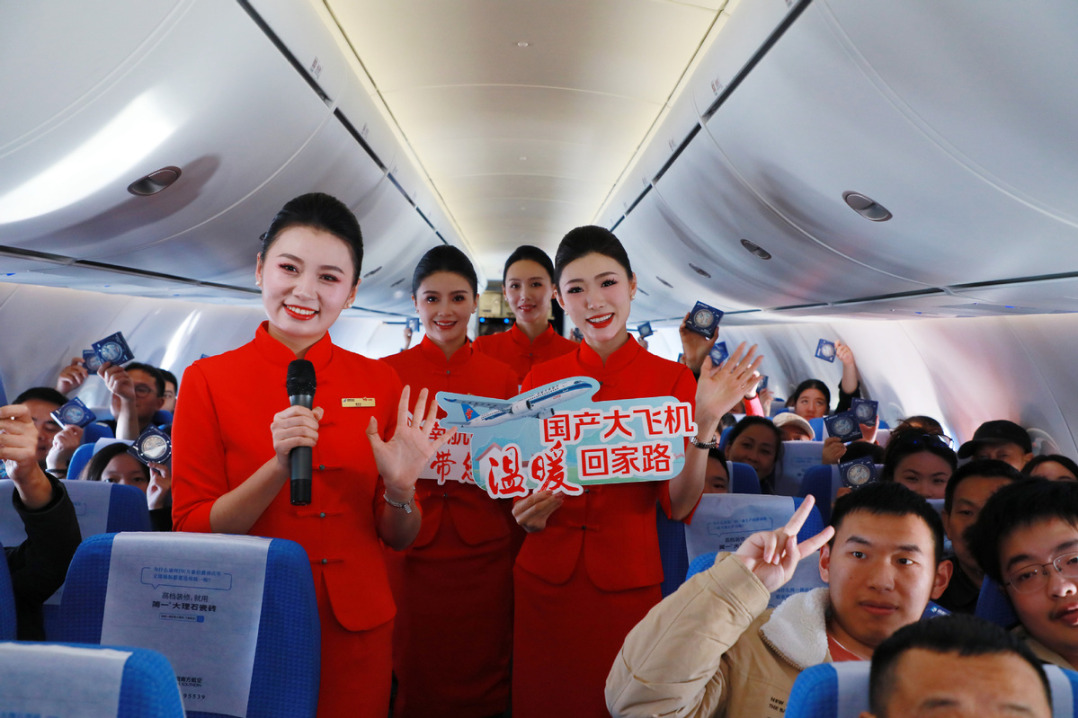Chongqing becomes magnet for tourism


CHONGQING — In this famously hilly metropolis, long lines have become commonplace — whether it's waiting over 100 tables for a trendy hotpot, walking three to four kilometers to snap a photo of the iconic Hongyadong complex, or queuing for three hours to board a river cruise.
The metropolis buzzes with life, as streets teem with hungry foodies and eager sightseers, all on the hunt for their next delicious bite or stunning view.
According to the Chongqing Commission of Culture and Tourism Development, the city welcomed 22.6 million domestic tourists during the seven-day National Day holiday in October, a 14.1 percent year-on-year increase. Tourists spent around 15.4 billion yuan ($2.16 billion), up 15.8 percent year-on-year, while overnight inbound visitors surged by 140 percent.
Luo Zibai, director of the Chongqing Tourism Development Research Center at Chongqing Normal University, attributes the city's appeal to its stunning natural landscapes, rich cultural heritage and mouthwatering spicy food.
The city's unique topography, where buildings cling to hills and roads are intertwined with rivers, creates a captivating urban landscape that leaves a lasting impression on visitors, Luo added.
A prime example is Hongyadong, a landmark complex of stilted houses that attracted over 1 million visitors during this year's National Day holiday. Wang Huajun, a local merchant, noted how the site has evolved. "In the past, tourists would just take photos and leave after a meal," he said. "Now, it's transformed into a comprehensive destination that integrates culture, tourism and commerce so that visitors can immerse themselves in local culture, savor authentic Chongqing cuisine and purchase unique cultural products."
Chongqing is also embracing innovation in digital cultural tourism. In the heart of the city, a 6,000-square-meter center fuses local culture and stunning scenery with cutting-edge technology, offering visitors immersive experiences through dynamic cinemas and augmented reality hologram theaters.
Officials from Yuzhong district's cultural tourism department emphasized their commitment to advancing digital cultural tourism, digital marketing and creative design. They aim to position digitization as a key growth area for the cultural and tourism industries.
While the exact moment Chongqing became an "internet famous" city remains uncertain, it is clear that social media has played a pivotal role in boosting its popularity. "There's no better city for photography than Chongqing," said Xue Lin, a tourist from Beijing.
Xinhua
- Beijing holds vibrant New Year celebrations at Shougang Park
- Trade between Chinese mainland, Taiwan records year-on-year increase of 9.4%
- Taiwan residents make over 4m trips to mainland in 2024, up 54.3%
- Xi Jinping's cultural footprints in 2024
- Southeast Asian mayors experience Chinese New Year traditions in Nanning
- 90 years on, Long March's legacy inspires China's progress in the new era





































